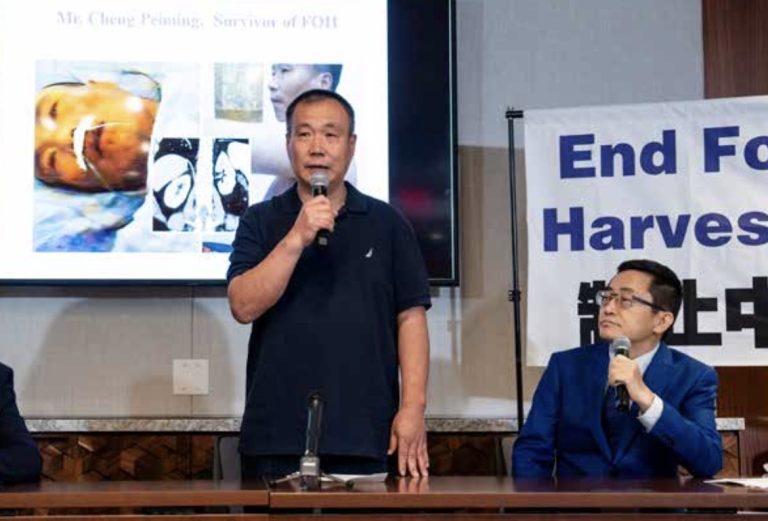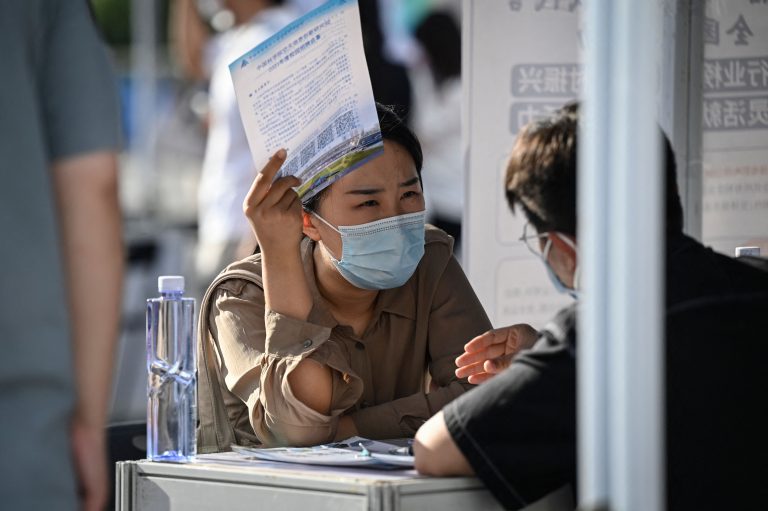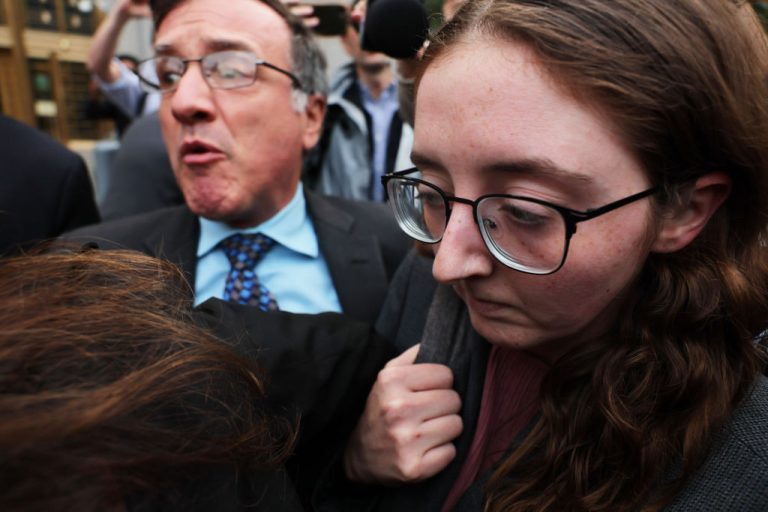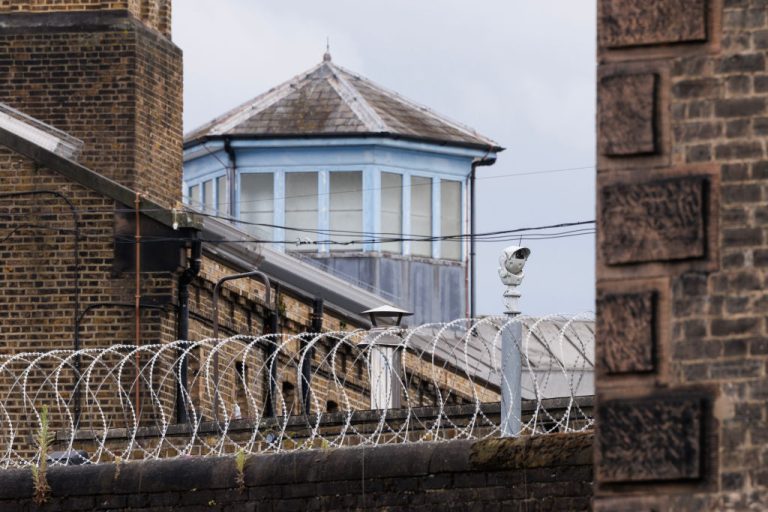After escaping communist persecution in China in 2020, Cheng Peiming has become the first person confirmed to have been a victim of forced organ harvesting in the country — and lived to tell the tale.
Cheng, now 59, spoke about his ordeals at a press conference in Washington, D.C., on Aug. 9 (Friday), offering unprecedented testimony about a longstanding atrocity for which evidence has been mounting.
A series of medical tests and examinations by transplant doctors, as introduced at the press event, ascertained that Cheng had had part of his liver and lung surgically removed.
He is an adherent of Falun Gong, a traditional Chinese faith group that the ruling communist regime has spent 25 years trying to wipe out at home and silence abroad.
Starting in 1999, when the Chinese Communist Party (CCP) launched its anti-Falun Gong campaign, Cheng faced detention and torture multiple times. A rural resident of eastern China’s Shandong Province, he was just one of millions of people who had taken up Falun Gong in the 1990s.
Success
You are now signed up for our newsletter
Success
Check your email to complete sign up
Cheng’s experience was far from unique. As the Party escalated its campaign, many thousands of Falun Gong practitioners had been arrested, beaten, tortured, or worse.
In 2002, while in custody, Cheng was suddenly transferred to prisons in Harbin and then Daqing, two cities in northeastern China’s Heilongjiang Province.
“It was there that I was tortured even more severely,” Cheng told journalist Tasnim Nazeer, whose story on him was published Aug. 10 in The Diplomat.
Two years later, following a session of particularly excruciating torture, Cheng was taken to a hospital, where doctors performed open-chest surgery on him, supposedly to remove metal items he’d swallowed in detention.
That day, Nov. 16, 2004, several officers held Cheng down for the operation, which neither he nor his family members consented to. A 14-inch scar from the incision runs across his flank.
In March 2006, Cheng Peiming was told he would undergo a second surgery, again with the excuse of removing ingested objects, at the Longnan Hospital in Daqing.
Fearing for his life, Cheng found an opportunity to escape the hospital via a fire exit.
Living evidence
Forced organ harvesting has been alleged to be taking place in China since the 1990s, with the bloody industry believed to have expanded vastly after the CCP began its persecution of Falun Gong.
In recent years, human rights investigators have warned that members of the Uyghur and Tibetan minority groups of western China are also becoming targets of organ harvesting. A growing number of Chinese citizen journalists allege that even ordinary citizens — particularly young students — are being abducted and killed for their organs.
However, most evidence indicating that the authorities are engaged in the lucrative mass murder has relied on statistical analysis and other circumstantial clues. Owing to the death of nearly all victims and strict CCP censorship, hard evidence is difficult to obtain.
“Till now, there has not been anybody who was able to get up and say they have been killed for their organs. The bodies are often cremated after organ harvesting, so there is nothing physically to look at,” said David Matas, a Canadian international human rights lawyer and co-founder of the International Coalition to End Transplant Abuse in China (ETAC).
“Mr. Cheng can say he has been organ harvested as there are parts of his liver and lung that are missing, and it’s incontestable. It provides a visual element, a speaking victim that we’ve never seen before with that type of abuse,” Matas added.
After escaping the Daqing hospital, Cheng Peiming spent nine years on the run in China before smuggling himself to Thailand.
With the help of Robert Destro, who served as Assistant Secretary of State for Democracy, Human Rights, and Labor at the end of the Trump administration, Cheng was able to arrive in the United States.
Cheng’s case is not only unique but also puzzling, as it remains unknown as to why he only had part of his organs harvested and was allowed to live.
Matas theorized that the hospital staff could have been using Cheng for practice, while Wendy Rogers, advisory board chair at ETAC, said it was possible that his liver tissue could have been given to a child patient, as reported by The Epoch Times.
The Epoch Times had broken the story about the allegations of organ harvesting in 2006, when a whistleblower approached the New York-based media outlet founded by Falun Gong practitioners with information about the CCP’s harrowing crimes.
The press conference organizers noted that the incision on Cheng’s side — between the ribs — was unusual for an organ transplant, but it did offer greater access to organs in both the chest and abdomen.
“I believed they would kill me. I’m not sure they thought I could survive, but I did,” Cheng told The Telegraph ahead of the D.C. press event.







